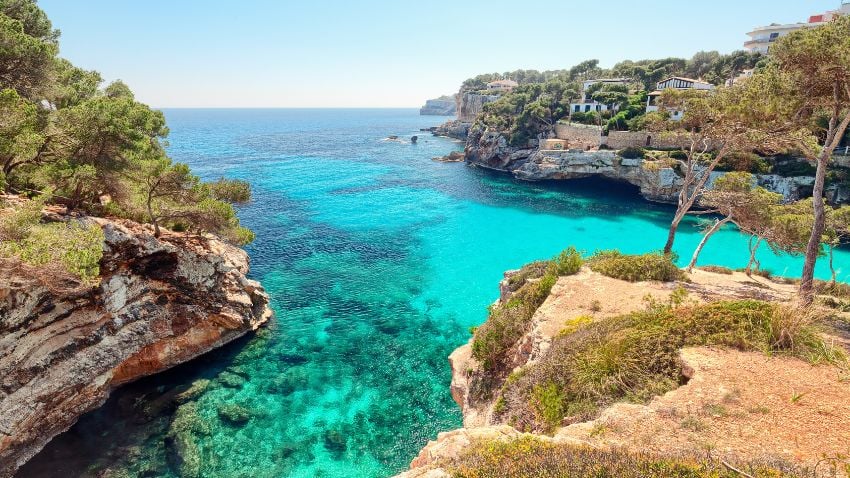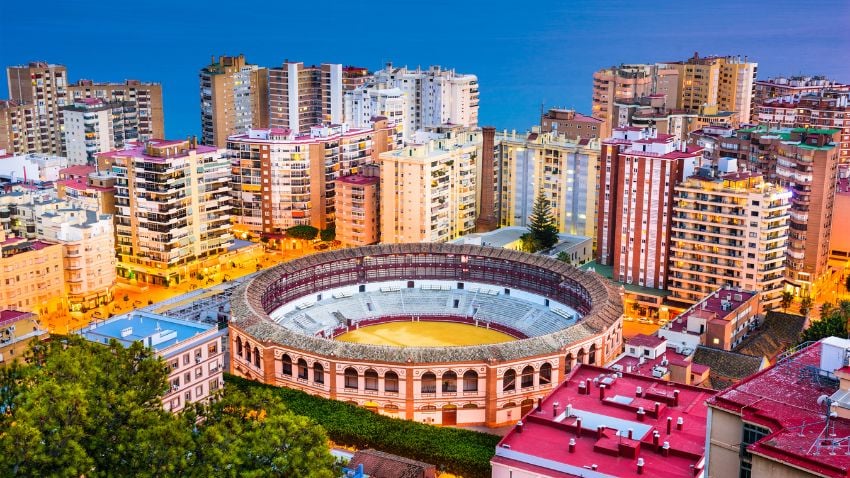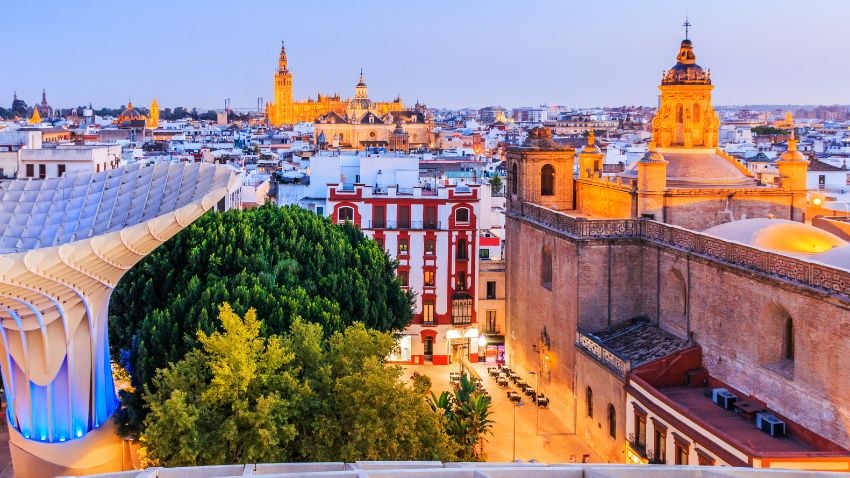Best Cities To Live In Mexico In 2026
Mexico remains one of Latin America’s most compelling destinations, especially for North Americans. More than a million expats call it home, and tens...
6 min read
Many expats and expat-hopefuls think of Spain as a sunny paradise where life is easy. The idea of this country can be intoxicating, igniting a spark of excitement within you. The Mediterranean and laid-back lifestyle, world-class Spanish cuisine and even the typical siesta look like a dream for you if you come from a country where everything is expensive and you spend little to no time with your family due to professional obligations.
However, Spain these days is far from this notion. This might come as a surprise, but times have changed a lot, and Spain is no exception. High taxes, a weak rule of law and even the ghost of global agendas are just some of the reasons why this isn’t the country you may think of.
In this article, we’re delving into the aspects that could challenge your vision of expat life in Spain. You’ll discover the realities that might not be on your radar. So, if you’re ready to explore beyond the glossy brochure, let’s begin.
Thankfully, the world remains a large place and better residency options are waiting for you. If you want to discover some of the best second residencies out there, get your free special report, “Plan-B Residencies and Instant Citizenships.” It comes with the intel you need to get a second residency and even a solid second passport. You don’t want to miss it.

The Spanish siesta remained only in the realm of ideas, some expats say that Spain is good for living but not for working
Now, it’s time to bust a myth that’s been perpetuated about Spain: the legendary siesta. The idea of the whole country taking an afternoon nap, leaving the streets deserted and the shops closed, is just that – an idea. While the siesta culture does exist in certain regions, it's not as prevalent as you might think.
Long working hours are a norm, and those midday naps might be reserved for weekends. That’s why even some expats say that Spain is a good place to live but not to work.

No matter how much you believe you can add a lot of value to the Spanish job market, you may end up overworked and underpaid
As you settle into your expat life, you might notice something peculiar – a prominent lack of qualified professionals from Spain. Where did they go, you ask? Many have embarked on a journey similar to yours. They escaped the country in search of better opportunities beyond their homeland. This leaves gaps in Spain’s professional landscape.
But hold on, don’t think that you’ll save the country from its demons. You might want to move there and be a rare commodity to get paid top dollar (or rather, euro). This is, again, just a good idea.
Even if you bring lots of value to the Spanish job market, you’ll most likely be overworked and underpaid. Spain is proof that working long hours doesn’t equate to profit. This is caused, among other reasons, by what we talk about in reason number 2 – taxes.
Therefore, qualified professionals are rare, while low-tier jobs are commonplace. The most ambitious individuals often move to other countries that offer bigger salaries or tax regimes. For example, successful online entrepreneurs get criticized for moving to Andorra for its convenient tax regime. There’s a strange consensus that portrays jurisdictions like Andorra as “tax havens,” but it looks like no one calls Spain a high tax jurisdiction.

Large urban centers like Barcelona and Madrid offer modern amenities and bustling markets, but their cost of living can be high
Imagine living in a picturesque rural area in Spain, surrounded by rolling hills and breathtaking landscapes. But again, reality sets in – the infrastructure is lacking. You’re dealing with bumpy roads, weak internet and a general sense of isolation.
Now consider the pull of major urban areas like Barcelona and Madrid. These cities offer modern amenities, bustling markets and a diverse cultural scene. But the cost of living can be steep, too.
Another important aspect is the energy sector, which comes with its own set of defects. Yet, in regions like Canarias, Andalusia, and Catalonia, they can become a part of your reality. Imagine a tranquil evening at home, the lights suddenly flicker, and darkness envelops the room. You call your company, but they don’t offer any solution.

Whether essential or not, it is necessary to pay attention to the price tags in Spain, not to mention the exorbitant taxes
It's undeniable that Spain’s cost of living is one of the lowest in the EU, especially compared to countries like Luxembourg. Imagine strolling through a local market, captivated by the vibrant displays of fresh produce. But as you reach for a bottle of renowned Spanish olive oil, you're taken aback by the price tag – one litre costs 6 euros. Wasn’t this country one of the top exporters of olive oil?
The cost of living is a multifaceted beast, demanding careful consideration of each expense. It's as if you're a detective, examining every receipt and weighing the value of each purchase. From the essentials to the indulgences, Spain's price tags can be an eye-opener, reshaping your perceptions of daily life expenses. Pair that with the astronomical taxation, and you’ll find the perfect reason to live somewhere else.

The Spanish government is very efficient when it comes to collecting taxes, regardless of the party in power
Picture this: you've just moved to Spain, excited to embark on your expat journey. You've settled into your new home, savoured some tapas, and are ready to embrace the Mediterranean lifestyle. Life is good, right? Not so much, though…
When you least expect it, there comes a letter from the Tax Collector (in Spain, Hacienda). It hits you like a thunderbolt, and it’s a huge text filled with words you cannot even understand; upon analysis, you realize they demand payment for your “fair share” of taxes. “Spain is different,” they say.
The Spanish government is tremendously fast when it comes to taking money from you. No matter the party in power, Hacienda is always the most efficient ministry. But what about the others? The rest of the government machinery will make you feel like you’re in a never-ending game of paperwork ping-pong – you're not sure which way to turn, and the outcome is often far from certain.

Being pragmatic, a net worth of 167,129.45 euros is subject to a wealth tax of 0.2%. Spain is definitely not a good country to store your money
It’s common to hear “intellectuals" claim that taxes are necessary to fund hospitals, schools, roads and other services. As my dear friend Alex Voss pointed out in the podcast episode about self-governing cities, this is simply not true. However, the Spanish government’s propaganda is all about targeting the “rich” and chasing after any productive individual in the economy to fund their “social programs.”
The result? The previously mentioned brain drain. To add insult to injury, workers are forced to dedicate more than half of their hard-earned money to taxes. Can you see what all the money is for? The services provided sometimes leave you wondering where your money is going. If you want to resort to the public healthcare system, expect long waiting times to get an appointment. Another outrageous example is that multiple highways require you to pay toll fees. Weren’t the roads already built with tax money?
And as promised by the Spanish government itself, they want to tax the rich. That’s why a wealth tax of up to 3.5% comes into play. To put things into perspective, just think that a modest networth of €167,129.45 is liable to a 0.2% wealth tax. As you can see, Spain is not a good country to keep your money. In this regard, Portugal is doing a better job.

Spain has the reputation of being one of the countries with the best cuisine in the world, but no one knows until when due to food shortages and tax pressure on farmers
Under the guise of Agenda 2030’s well-sounding intentions lies a dangerous reality – more control of every aspect of people’s lives, including food. Taxes and regulations have been suffocating Spanish farmers, making it hard for them to profit from their vital work for society. Over the last few years, multiple water dams have been destroyed, raising concerns among farmers. Spain is often regarded as one of the countries with the best cuisine in the world, but who knows if this will change shortly due to provoked food shortages.
Discussing all the dangers of this agenda is a topic for another article, but just so you get the big picture, consider that Spain is a member of the EU, so it’s not a sovereign country. When it comes to taxes, sure, the government does whatever it can to oppress hard-working individuals with the consent of the EU. However, the ECB controls the monetary policy and is even flirting with the idea of implementing CBDCs, which will likely imply massive restrictions on liberties.

If you are looking for a lifestyle similar to Spain, including gastronomy and friendly people, I suggest Panama; many similarities with a lower cost and a more friendly tax regime
Wrapping up our exploration, Spain's expat journey unfolds as a mosaic of surprises that extend beyond its initial allure. Beneath the sun-kissed exterior lies a landscape of complexities, from intricate bureaucracy to shifting agendas. While the charm of local culture and picturesque landscapes beckons, so do the challenges of adapting to high taxes and navigating infrastructure limitations, among others.
If you want to enjoy a similar lifestyle to that of Spain, including amazing food and friendly people, I strongly suggest Panama – the same language, lower cost of living and a better tax regime.
At the end of the day, everyone is free to choose the destination that suits them best, but when it comes to living and working, Spain has a lot of room for improvement. Sadly, there’s no real intention of reforming the country and solving all these structural problems.
Thankfully, the world remains a large place and better residency options are waiting for you. If you want to discover some of the best second residencies out there, get your free special report, Plan-B Residencies and Instant Citizenships. It comes with the intel you need to get a second residency and even a solid second passport. You don’t want to miss it.
If you want the best intel from the expat world, including profitable offshore opportunities, little-known tax-saving strategies, and hard-won insights on immigration, passports, and Plan-B residencies, all delivered to your inbox every single week, then join our daily correspondence, EMS Pulse®. Currently enjoyed by over 84,000 expats and expat-hopefuls worldwide. Fill in the form below to join our newsletter free:

Written by Mikkel Thorup
Mikkel Thorup is the world’s most sought-after expat consultant. He focuses on helping high-net-worth private clients to legally mitigate tax liabilities, obtain a second residency and citizenship, and assemble a portfolio of foreign investments including international real estate, timber plantations, agricultural land and other hard-money tangible assets. Mikkel is the Founder and CEO at Expat Money®, a private consulting firm started in 2017. He hosts the popular weekly podcast, the Expat Money Show, and wrote the definitive #1-Best Selling book Expat Secrets - How To Pay Zero Taxes, Live Overseas And Make Giant Piles Of Money, and his second book: Expats Guide On Moving To Mexico.

Mexico remains one of Latin America’s most compelling destinations, especially for North Americans. More than a million expats call it home, and tens...

South Korea is far more than K-pop and K-dramas. It is a country known for outstanding food, from bustling street markets to high-end dining, as well...

Asia is one of the most fascinating regions in the world for travel, offering an extraordinary mix of cultures, histories, and landscapes. From...